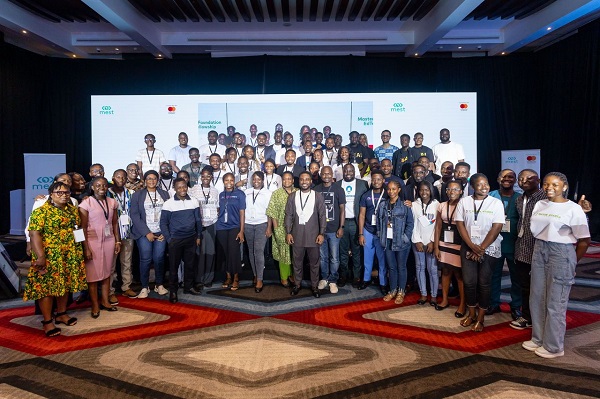
Second cohort of EdTech Fellowship launched
MEST Africa, in partnership with the Mastercard Foundation, has launched the second cohort of the Mastercard Foundation EdTech Fellowship.
This six-month entrepreneurship acceleration programme welcomed 12 innovative EdTech companies poised to transform education across Ghana by addressing critical learning challenges with technology-driven solutions.
The second cohort builds on the success of the first, whose 12 EdTech companies impacted over 136,798 learners during their acceleration period, underscoring the Fellowship’s ability to drive transformative change.
This sets the stage for the 2025 cohort to further advance inclusive and equitable education in Ghana.
Speaking at the launch in Accra, the Technical Advisor to the Minister of Education, George K.T. Oduro, said the Mastercard Foundation EdTech Fellowship aligns with the Ministry’s vision of fostering problem-solving, creativity and critical skills through STEM and innovation-oriented education.
He highlighted the Ministry’s efforts to integrate technology into the curriculum and expand STEM access while addressing challenges like insufficient power, unstable internet and rural-urban disparities.
Prof. Oduro lauded the Fellowship’s support for local entrepreneurs tackling these issues, urging collaboration among innovators, educators and stakeholders to drive EdTech’s potential.
“You are not just building apps; you are shaping the way a generation learns,” he stated.
The Strategic Director for MEST Africa, Greg Cousa, commended the remarkable performance of the Fellowship in investing and supporting innovative ideas to improve STEM education across Africa.
“We are creating a pathway of high potential EdTech ventures to grow, scale and, most importantly, change learning outcomes for the better,” he said.
Sustainable solutions
The Head of Strategic Partnerships & Thought Leadership at the Mastercard Foundation Centre for Innovative Teaching and Learning, Suraj Shah, emphasised the partnership’s crucial role in scaling solutions that prioritise end users.
For his part, the Acting Director of the Centre, Rodwell Mangisi, emphasised the Centre’s mission to strengthen the African EdTech ecosystem via the Young Africa Works strategy.
He explained that the programme has accelerated over 140 fellows since its inception, showcasing technology’s potential to transform lives when designed with purpose.
Mr Mangisi expressed optimism about collaborating with tech hub partners to create scalable, sustainable solutions that improve learning outcomes for millions across Africa.